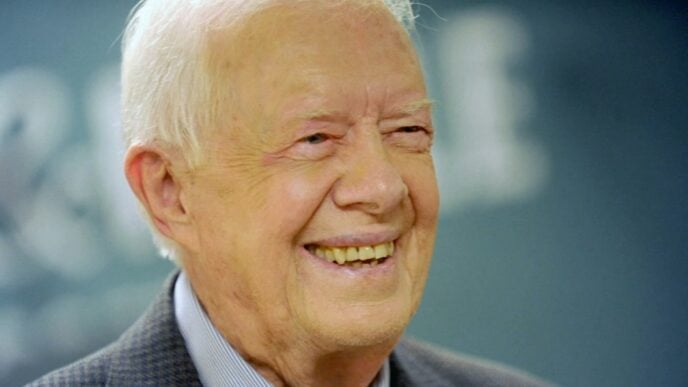BY OPATOLA VICTOR
Qualified privilege is a key defence in defamation cases, protecting individuals who speak on matters of public interest, especially when they are honest and act with a sense of duty. This defence helps strike a balance between protecting someone’s reputation and allowing people to discuss important issues openly. In this article, I will explore how the defence of qualified privilege works, particularly in the context of Nigerian society, where discussions about public figures and institutions are critical for accountability and transparency.
In a defamation case, the person claiming to have been defamed (the plaintiff) needs to prove certain things:
- A statement was published: The defendant made the statement publicly and in a permanent form.
- The statement was about the plaintiff: The person who feels defamed must show the statement referred to them.
- The statement was defamatory: It must be proven that the statement harmed the plaintiff’s reputation.
- This harm can be shown in several ways:
- It lowered the plaintiff’s standing among reasonable people.
- It exposed the plaintiff to hatred, ridicule, or contempt.
- It damaged the plaintiff’s reputation in their job, trade, or business.
- It hurt the plaintiff’s financial credit.
The supreme court also held that in an action for defamation, the court must satisfy itself first, that the case for defamation has been established by the plaintiff before it goes on to consider any defence which the defendant has put up in answer to the libel.
Advertisement
What is qualified privilege?
Qualified privilege applies when the person making the statement (the defendant) has a legal, moral, or social duty to communicate the information, and the person receiving it has a legitimate interest in hearing it. Unlike absolute privilege, which completely protects certain statements, qualified privilege is conditional. If the plaintiff can prove that the defendant acted with malice, the defence of qualified privilege can be defeated.
Qualified privilege is developed under common law to protect individuals who, in the course of fulfilling their responsibilities, make defamatory statements in good faith. For instance, in the case of Toogood v Spyring, where the court held that individuals who make statements in good faith during the course of their duties should not be held liable for defamation. The Supreme Court Newbreed Org. Ltd. v. Erhomosele defined malice to be an active ill-will or desire to harm others. It is a very difficult task to read the mind of an individual with a view to finding out his motive or his intention for doing a particular act. Surrounding circumstances will be a veritable guide to finding out the motive for doing a particular act.
Advertisement
Types of qualified privilege
- Common law privilege: This type of privilege applies when the defendant has a duty to make the statement, and the recipient has a legitimate interest in receiving it. For example, this can include job references or communication between professionals.
- Statutory privilege: In some cases, laws (e.g. Lagos State Defamation Law) may provide qualified privilege for specific types of publications, such as reports on public proceedings.
For qualified privilege to apply, the following must be true:
- Good faith: The defendant must have acted in good faith. If the plaintiff can prove malice, the defence fails.
- Duty to communicate: The defendant must have had a legal, moral, or social duty to share the information.
- Interest of the recipient: The recipient must have had an interest in receiving the information.
Why qualified privilege matters
Qualified privilege allows people to share important information in specific situations without fear of defamation claims. For instance, exposing corruption, investigating crimes, or bringing public attention to issues like bribery and fraud can be protected under qualified privilege, provided it is done in good faith. Qualified privilege, therefore, provides a more nuanced approach to protecting free speech while allowing for accountability when statements are made with malice.
Advertisement
It protects statements made in specific contexts where there is a recognized duty to communicate information, thus fostering an environment where important information can be shared without fear of defamation claims. Defamatory statements can be entertained under qualified privileged if made bona fide in exposing corruption, prosecution of an inquiry into a suspected crime and for the purpose of detecting and bringing to punishment the criminal or of recovering stolen goods, bringing government attention to issues of bribery and corruption etc
In the case of Umagba v. Ogbe (1996) 8 NWLR (Pt. 468) 621, the court of appeal held that “a person, who suspects and has reason to suspect another of a particular theft, may with a view to inquiry, tax that individual with the theft and although the suspicion turns out to be erroneous, the law gives no redress to the party accused. If the defendant continues to propagate the story to strangers, that would furnish evidence of malice; but if he could not lawfully charge the person suspected on reasonable grounds, though innocently, of having committed the theft, it would be quite impossible for a man who is robbed to inquire with any safety after the stolen goods, (P. 626-627, paras. H-B)”.
The principle on which the defence of privilege is founded is a universal one, that public convenience is to be preferred to private interests and that communication which the interest of society requires to be unfettered may freely be made by persons acting honestly without actual malice notwithstanding that they involve relevant comments condemnatory of individuals. If the defendant is malicious, that is, if he uses the occasion for some other purpose than that for which the law gives protection, he will not be able to rely on the privilege.
The Supreme Court in Newbreed Org. Ltd. V. Erhomosele (2006) 5 NWLR (Pt. 974) 499 stated that: “What is required on the part of a defendant in an action for defamation to entitle him to the protection of a qualified privilege is a positive or honest belief in the truth of what was published. If he published untrue defamatory matter recklessly, without considering or caring whether it is true or not; he is treated as if he knew it to be false. But indifference to the truth of what he published is not to be equated with carelessness, impulsiveness or irrationality in arriving at a positive belief that it is true. The freedom of speech protected by the law of qualified privilege may be availed by all sorts and conditions of men.
Advertisement
In affording them immunity from action, if they have acted in good faith in compliance with a legal or moral duty or in the protection of a legitimate interest, the law must take them as it finds them. In ordinary life, it is rare for people to form their beliefs by a process of logical deduction from facts ascertained by a rigorous search for all available evidence and a judicious assessment of its probative value.
To a greater or lesser degree, according to their temperaments, training, or intelligence, they are swayed by prejudice, rely on intuition instead of reasoning, leap to conclusions on inadequate evidence and fail to recognise the cogency of material which might cast doubt on the validity of the conclusions they reach. But despite the imperfection of the mental process by which the belief is arrived at, it may still be “honest”, that is, a positive belief that the conclusion the defendant reached is true. The law demands no more.” (Pp. 540-541, paras. F-C)
Advertisement
The duty-interest test
One of the most important cases on qualified privilege is Adam v. Ward (1917) A.C. 309 at 334, where the court introduced the duty-interest test. This test checks whether the defendant had a duty to share the information and whether the recipient had an interest in receiving it.
Advertisement
In another case, Horrocks v. Lowe (1974) 1 All ER 662, the court explained that the defence of qualified privilege will fail if there is malice. Malice, in this context, means that the defendant either knew the statement was false or was reckless about whether it was true or not.
Case analysis: Does VeryDark Man have qualified privilege?
Advertisement
For VeryDark Man to successfully use the defence of qualified privilege, three things must be present as they are conductive in nature.
- Good faith: Did VeryDark Man act in good faith, or is there evidence that his statements were driven by malice? The intent behind the speaker’s comments is paramount in assessing good faith. If his intent was to expose corruption and inform the public, this could strengthen his defence. However, if his comments were intended to merely provoke outrage without caring about the truth, his defence may fail.
- Duty to communicate: Can it be argued that VeryDark Man had a legal, moral, or social duty to share the information in the audio or say certain things he said?
- Interest of the recipients: Did the people who heard his statements, including the general public, government institutions, and lawmakers who have commenced various investigations into the issue, have a duty to receive the information?
Conclusion
The statements made and the audio shared by VeryDark Man require careful consideration within the framework of defamation law. His ability to use the defence of qualified privilege depends on the context of his statements, the presence of good faith, and the absence of malice.
If he can show that he acted with a sense of duty and that his audience had a right to hear the information, he may be protected by qualified privilege. However, if malice is proven, the defence will not apply.
Opatola Victor is a legal practitioner with Legalify Attorneys and can be reached through [email protected]
Views expressed by contributors are strictly personal and not of TheCable.
Add a comment









